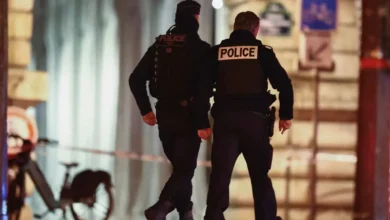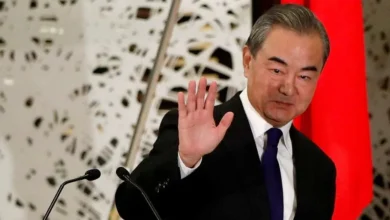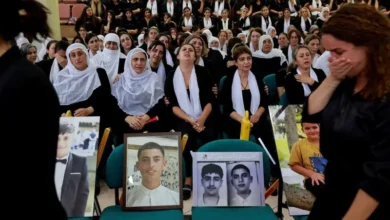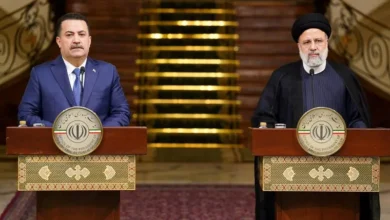World reactions to Israel’s deadly strikes on Iran
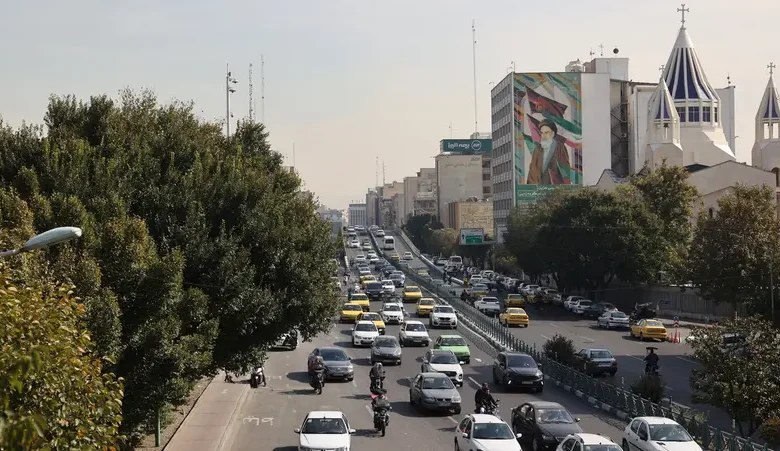
Israel struck military sites in Iran early on Saturday, but its retaliation for an Iranian attack this month did not appear aimed at the country’s most sensitive oil and nuclear targets after urgent calls from allies and neighbours for restraint.
Israel’s military said scores of jets had completed three waves of strikes before dawn against missile factories and other sites, and warned its heavily armed arch-foe not to hit back.
Following are reactions by regional and international countries as the risk of a wider conflagration between Israel and Iran has convulsed a region already on fire with warfare in Gaza and Lebanon.
Senior Biden administration official
The US said Israel’s strikes on military sites in Iran appear to have been a targeted and proportional response to Tehran’s earlier attacks, with low risk of civilian harm.
An official of the administration said this should be the end of direct exchanges of fire between the two countries, adding that the US has multiple direct and indirect channels of communication with Iran where it has made its position clear.
“Should Iran choose to respond we are fully prepared to defend Israel and support Israel and there will be consequences should Iran make that unfortunate decision,” said the official. “But as far as we’re concerned, this direct exchange, this should be the end of it.”
British Prime Minister Keir Starmer
British Prime Minister Keir Starmer said Iran should not respond to a wave of Israeli strikes, urging restraint on all sides.
“I am clear that Israel has the right to defend itself against Iranian aggression. I’m equally clear that we need to avoid further regional escalation and urge all sides to show restraint. Iran should not respond,” he said, speaking at a press conference in Samoa, where he has been attending a Commonwealth Heads of Government Meeting.
German chancellor Olaf Scholz
Germany’s Chancellor Olaf Scholz warned Iran against any “escalation.”
“My message to Iran is clear: massive escalating reactions must not continue. These must stop immediately. Only then can we open the possibility of a peaceful evolution in the Middle East,” he posted on X.
In addition, Scholz called for ceasefires in Gaza and Lebanon, and for the release of all hostages held by Hamas.
European Union
The European Union called for all parties to exercise utmost restraint to avoid an “uncontrollable escalation” in the Middle East.
“The dangerous cycle of attacks and retaliations risks causing a further expansion of the regional conflict,” it said in a statement.
“While acknowledging Israel’s right to self-defense, the EU calls on all parties to exercise utmost restraint to avoid an uncontrollable escalation, which is in no one’s interest.”
Russia
Russia urged all sides to exercise restraint and warned of a “catastrophic scenario.”
“We urge all parties involved to exercise restraint, stop the violence and prevent events from developing into a catastrophic scenario,” foreign ministry spokeswoman Maria Zakharova said, warning of an “explosive escalation.”
Saudi Arabia
For its part, Saudi Arabia condemned the strikes on Iran, calling them a “violation of its sovereignty and a violation of international laws and norms.”
“The Kingdom affirms its unwavering position in its rejection of the continued escalation in the region and the expansion of the conflict that threatens the security and stability of the countries and people of the region,” a statement published by the national Saudi Press Agency (SPA) read.
“The Kingdom urges all parties to exercise the utmost restraint and reduce escalation.”
UAE
Meanwhile, the United Arab Emirates also condemned the strikes urging the “importance of exercising the highest levels of restraint and wisdom to avoid risks and the expansion of conflict.”
“The UAE strongly condemns the military targeting of the Islamic Republic of Iran and expresses deep concern over the continued escalation and its impact on regional security and stability,” a statement from the foreign ministry said.
Iraq
Iraq condemned the strikes, called for a ceasefire in Gaza and Lebanon, and “comprehensive regional and international efforts to support stability in the region.”
A statement of the Iraqi Prime Minister’s office read that Israel “continues its aggressive policies and expansion of conflict in the region, employing blatant acts of aggression without deterrence.”
Qatar
Qatar, a mediator trying to end the Gaza war, expressed in a foreign ministry statement its “deep concern about the serious repercussions that may result from this escalation” by Israel on Saturday.
Oman
Oman, which has long played a mediating role between Iran and Western countries, said Israel’s attack on Iran “fuels the cycle of violence and undermines efforts” to de-escalate.
It said the international community should “put an end to these blatant violations on the territory of neighboring countries.”
Syria
Syria expressed its “solidarity” with its ally Iran.
The foreign ministry said it supported “Iran’s legitimate right to defend itself and protect its territory and the lives of its citizens.”
Jordan
Jordan said the strikes were “in violation of international law and (Iran’s) sovereignty, and a dangerous escalation that leads to more tension in the region.”
Foreign ministry spokesman Sufyan Qudah called on the international community to “assume its responsibilities and take immediate measures to impose a halt to the Israeli aggression on Gaza, the West Bank and Lebanon as a first step towards reducing the escalation.”
Algeria
The Algerian foreign ministry issued a statement saying that it “strongly condemns and denounces” Israel’s military strikes on Iran, which it called “heinous aggression,” and called on the international community to halt Israel from escalating conflict in the region.
Tunisia
Tunisia issued a statement warning of “severe consequences” of Israel’s strikes on Iran and calling on “the international community to urgently assume its responsibilities to put an end to this reckless approach.”
Egypt
Egypt expressed “grave concern” regarding the and condemned “all actions that threaten the security and stability of the region.”
“Egypt stresses its position that a ceasefire in the Gaza Strip should be reached quickly within the framework of a deal through which hostages are released given that it is the only way to de-escalate,” the foreign ministry said in a statement published on Facebook.
India
India’s external affairs ministry called for restraint and a return to dialogue and diplomacy.
“The ongoing hostilities are to nobody’s benefit, even as innocent hostages and civilian populations continue to suffer,” it said in a statement.
Pakistan
Pakistan condemned the strikes saying Israel would bear “full responsibility for the current current cycle of escalation and expansion of the conflict.”
“Pakistan strongly condemns Israel’s strikes against the Islamic Republic of Iran. These strikes undermine path to regional peace and stability and also constitute a dangerous escalation in an already volatile region,” a statement by the Pakistani foreign office said.
Moreover, it called on the UN Security council to “play its role for the maintenance of international peace and security, and to take immediate steps to bring an end to Israeli recklessness in the region and its criminal behavior.”

